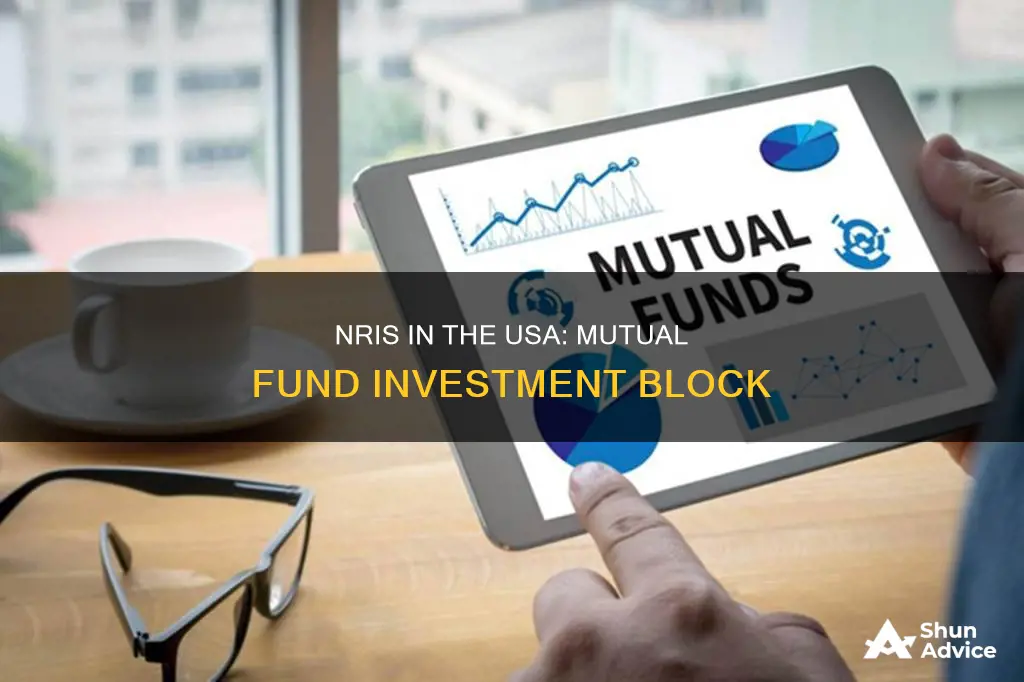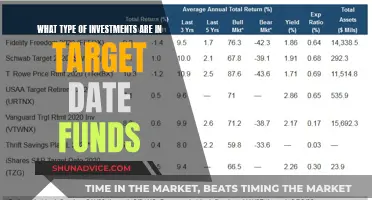
Non-Resident Indians (NRIs) in the USA and Canada face challenges when investing in Indian mutual funds due to compliance requirements under the Foreign Account Tax Compliance Act (FATCA). This law imposes stringent reporting obligations on financial institutions, including Indian mutual fund houses, requiring them to share details of transactions involving US citizens with the US government. To comply with FATCA, NRIs from the USA and Canada must submit extensive documentation, including their Tax Identification Number (TIN) or Global Intermediary Identification Number (GIIN). As a result, many mutual fund houses stopped accepting investments from these NRIs, though some have resumed with additional conditions, such as offline transactions and signed declarations. While NRIs from other countries can invest in Indian mutual funds with relative ease, those from the USA and Canada must navigate more complex compliance requirements.
| Characteristics | Values |
|---|---|
| Reason for restrictions | Compliance requirements under the Foreign Account Tax Compliance Act (FATCA) |
| FATCA requirements | Financial institutions must share details of all transactions involving US citizens, including NRIs, with the US government |
| Impact of FATCA | Mutual fund houses stopped taking investments from USA and Canada |
| Current situation | Many fund houses have started accepting investments from the USA and Canada again but with some conditions |
| Conditions | ICICI Prudential AMC, Birla Sun Life Mutual Fund, and SBI Mutual Fund allow US/Canada investments only through offline transactions with an additional declaration signed by the client |
| Fund houses accepting US/Canada NRIs | Aditya Birla Sun Life Mutual Fund, ICICI Prudential Mutual Fund, Sundaram Mutual Fund, Nippon India Mutual Fund |
| Additional requirements for US/Canada NRIs | Submission of Foreign Account Tax Compliance Act (FATCA) details, tax identification number (TIN), and Know Your Customer (KYC) details |
| KYC documents | Overseas address proof, passport-sized photograph, OCI Card (for foreign passport holders) |
| Account requirements | NRE (Non-Resident External) or NRO (Non-Resident Ordinary) account is required for transactions |
What You'll Learn
- Compliance requirements under the Foreign Account Tax Compliance Act (FATCA)
- Mutual fund houses that stopped taking investments from the USA and Canada
- Conditions applied by fund houses that allow US and Canadian investments
- Additional documentation requirements for US and Canadian NRIs
- The impact of currency fluctuations on returns

Compliance requirements under the Foreign Account Tax Compliance Act (FATCA)
The Foreign Account Tax Compliance Act (FATCA) is a US law that requires foreign financial institutions to report on the assets held by US account holders. It also requires US citizens and residents to file annual reports on any foreign account holdings and pay any taxes owed on them, with the goal of preventing tax evasion. FATCA was passed in 2010 as part of the Hiring Incentives to Restore Employment (HIRE) Act, which was designed to incentivise businesses to hire unemployed workers. The law also introduced business tax credits for each new employee hired and retained for at least 52 weeks, payroll tax holidays, and increased expense deduction limits for new equipment.
Under FATCA, foreign financial institutions (FFIs) and non-financial foreign entities (NFFEs) must disclose the identities of US citizens with accounts and the value of the assets in those accounts to the Internal Revenue Service (IRS) or the FATCA Intergovernmental Agreement (IGA). FFIs that do not comply will be excluded from the US market and will have 30% of any withholdable payments withheld as a tax penalty. Withholdable payments may include income generated from US financial assets, such as interest, dividends, and periodic profits.
FFIs and NFFEs that do comply must report annually the name, address, and tax identification number (TIN) of each account holder who is a US citizen, as well as the account number, balance, and any deposits or withdrawals for the year.
For US taxpayers living abroad, the IRS requires Form 8938 for those who are married filing a joint income tax return and have foreign financial assets totalling more than $400,000 on the last day of the tax year or more than $600,000 at any time during the year. For unmarried individuals, the threshold is $200,000 on the last day of the tax year or more than $300,000 at any time during the year.
For US taxpayers living in the US, the IRS requires Form 8938 for unmarried individuals with foreign financial assets totalling more than $50,000 on the last day of the tax year or more than $75,000 at any time during the year. For married couples filing a joint income tax return, the threshold is $100,000 on the last day of the tax year or more than $150,000 at any time during the year. Married couples filing separate returns must file Form 8938 if their foreign financial assets total more than $50,000 on the last day of the tax year or more than $75,000 at any time during the year.
There are serious penalties for not reporting foreign financial assets, including a $10,000 failure-to-file penalty, an additional penalty of up to $50,000 for continued failure to file after IRS notification, and a 40% penalty for understating taxes attributable to non-disclosed assets.
Pension Funds' Private Equity Investments: Why the Interest?
You may want to see also

Mutual fund houses that stopped taking investments from the USA and Canada
Non-Resident Indians (NRIs) residing in the USA or Canada face certain compliance considerations when looking to invest in mutual funds in India. This is due to the cumbersome compliance requirements under the Foreign Account Tax Compliance Act (FATCA), which requires financial institutions to share details of all transactions involving US citizens with the US government. As a result, many mutual fund houses stopped accepting investments from NRIs based in the USA and Canada.
However, after consultations between fund houses and experts, some have resumed accepting investments from these countries with certain conditions in place. Here is a list of mutual fund houses that allow USA/Canada NRIs to invest in Indian mutual funds:
- Aditya Birla Sun Life Mutual Fund
- ICICI Prudential Mutual Fund
- Sundaram Mutual Fund
- Nippon India Mutual Fund
- DHFL Pramerica Mutual Fund
- Canara Robeco Mutual Fund
- Kotak Mahindra Mutual Fund
It is important to note that each of these Asset Management Companies (AMCs) may have different conditions for accepting investments from US or Canada-based NRIs. Some may only accept investments through offline transactions with additional declarations, while others may have specific restrictions on certain types of funds.
Municipal Bond Funds: A Smart Investment Choice
You may want to see also

Conditions applied by fund houses that allow US and Canadian investments
US and Canadian NRIs are faced with certain compliance requirements under the Foreign Account Tax Compliance Act (FATCA) to invest in mutual funds in India. Nevertheless, many mutual fund houses have once again started allowing NRIs based in the USA and Canada to invest, but with some conditions applied.
Some of the leading Asset Management Companies (AMCs) that allow US and Canadian NRIs to invest in mutual funds in India include:
- Aditya Birla Sun Life Mutual Fund
- ICICI Prudential Mutual Fund
- Sundaram Mutual Fund
- Nippon India Mutual Fund
- DHFL Pramerica Mutual Fund
- SBI Mutual Fund
- L&T Mutual Fund
- Reliance Mutual Fund
Each of these AMCs has different conditions for accepting investments from US and Canadian NRIs. Some fund houses accept investments only through paper application forms, while others may accept online applications through platforms like NSE NMFII or BSE STARMF.
For example, ICICI Prudential AMC, Birla Sun Life Mutual Fund, and SBI Mutual Fund allow US and Canadian investments only through offline transactions with an additional declaration signed by the client. In contrast, L&T Mutual Fund does not permit such investments in close-ended funds.
Additionally, some AMCs like UTI Mutual Fund and Navi Mutual Fund accept digital declarations from NRIs based in the USA and Canada, while most other fund houses require physical declarations.
Compliance Requirements for US and Canadian NRIs
The compliance requirements for US and Canadian NRIs under FATCA are more stringent compared to those from other countries. According to FATCA guidelines, all financial institutions, including mutual fund houses, insurance companies, and banks, must share details of transactions involving US citizens, including NRIs, with the US government. This is to ensure that there is no deliberate tax evasion on income generated by US citizens overseas.
To facilitate this, India signed the Inter-Governmental Agreement (IGA) with the USA in 2015 to improve International Tax Compliance and implement FATCA. As a result, mutual fund houses must meet all compliance requirements, leading to some of them stopping or restricting investments from US and Canadian NRIs due to the increased paperwork and compliance burden.
Bond Fund Strategies: Dynamic Investing for Maximum Returns
You may want to see also

Additional documentation requirements for US and Canadian NRIs
US and Canadian NRIs face more compliance requirements than NRIs from other countries due to the Foreign Account Tax Compliance Act (FATCA). This legislation requires all financial institutions to share details of transactions involving US citizens, including NRIs, with the US government. This means that mutual fund houses must collect and submit specific information about their US and Canadian NRI investors.
As a result of these requirements, many mutual fund houses stopped accepting investments from US and Canadian NRIs. However, after consultations, some fund houses have started accepting investments from US and Canadian NRIs again, albeit with certain conditions.
For example, ICICI Prudential AMC, Birla Sun Life Mutual Fund, and SBI Mutual Fund allow US and Canadian NRI investments only through offline transactions with an additional declaration signed by the client. In contrast, L&T Mutual Fund does not permit such investments in close-ended funds.
US and Canadian NRIs should also be aware that the list of fund houses accepting their investments is subject to change, and they should consult with their respective fund houses to stay updated.
- Aditya Birla Sun Life Mutual Fund
- UTI Mutual Fund
- ICICI Prudential Mutual Fund
- L&T Mutual Fund
- Kotak Mutual Fund
- Parag Parikh Financial Advisory Services (PPFAS) Mutual Fund
- Sundaram Mutual Fund
When investing in Indian mutual funds, US and Canadian NRIs must comply with the Know Your Customer (KYC) requirements. The specific documents required for KYC verification include:
- A recent photograph
- Certified copies of a PAN card
- A passport copy
- Residence proof of outside India
- A bank statement
In-person verification may also be required, which can be completed at the Indian Embassy in the NRI's resident country.
In summary, US and Canadian NRIs face additional documentation requirements due to FATCA, and the list of fund houses accepting their investments is more limited compared to NRIs from other countries. However, there are still options available for them to invest in Indian mutual funds by complying with the necessary conditions.
Best Platforms for Direct Mutual Fund Investments
You may want to see also

The impact of currency fluctuations on returns
Non-Resident Indians (NRIs) who are interested in investing in Indian mutual funds need to be aware of the impact of currency fluctuations on their returns. Exchange rate risk, or currency risk, arises when the value of one currency changes relative to another. In the context of NRIs investing in Indian mutual funds, this risk is significant because the investments are typically denominated in Indian Rupees (INR), while NRIs may earn and spend in a different currency.
The impact of currency fluctuations can be significant. If the INR depreciates, an NRI investor may receive less than expected when they repatriate funds or convert their investment back into their home currency. On the other hand, if the INR appreciates, the investor will gain more than anticipated in their home currency. These fluctuations can be influenced by various factors, such as economic indicators, geopolitical developments, and central bank policies. Therefore, it is crucial for NRIs to closely monitor these factors to effectively manage their exchange rate risks.
To mitigate these risks, NRIs can consider diversifying their investments across different asset classes and currencies. They can also explore mutual funds that offer currency hedging, which locks in exchange rates and protects against potential losses. Staying informed about market trends and economic developments can also help NRIs make more timely and profitable investment decisions. Consulting with financial advisors and implementing tax-efficient investment strategies can further improve net returns and protect wealth from adverse currency movements.
It is worth noting that the compliance requirements for NRIs from the USA and Canada are more stringent due to the Foreign Account Tax Compliance Act (FATCA). This requires financial institutions to share details of transactions involving US citizens, including NRIs, with the US government. Despite these additional considerations, NRIs from the USA and Canada can still invest in Indian mutual funds, albeit with some conditions imposed by certain fund houses.
Venture Capital Funds Backing Xenex Disinfection Services
You may want to see also
Frequently asked questions
US NRIs can invest in mutual funds, but there are some restrictions and additional requirements due to tax regulations. The main challenge is the compliance requirements under the Foreign Account Tax Compliance Act (FATCA), which requires extensive documentation and reporting to the Internal Revenue Service (IRS). This has made some mutual fund houses reluctant to accept investments from US NRIs.
FATCA is the Foreign Account Tax Compliance Act, a United States federal law that requires foreign financial institutions to report certain information about financial accounts held by US taxpayers or foreign entities in which US taxpayers hold a substantial ownership interest. This is to prevent tax evasion on income generated by US citizens overseas.
US NRIs may need to provide extensive documentation to comply with FATCA, including their US Taxpayer Identification Number (TIN) or Global Intermediary Identification Number (GIIN). They may also need to submit a declaration form indicating their residential status and consent to share information with relevant tax authorities.
While some mutual fund houses have restrictions on US NRI investments, others allow it with additional conditions. Here are some that accept US NRI investments:
- Aditya Birla Sun Life Mutual Fund
- Nippon India Mutual Fund
- ICICI Prudential Mutual Fund
- Sundaram Mutual Fund
- DHFL Pramerica Mutual Fund
- Bandhan Mutual Fund
- Edelweiss Mutual Fund
- HDFC Mutual Fund
- Motilal Oswal Mutual Fund
US NRIs can invest in mutual funds by opening an NRE or NRO account with an Indian bank and then investing through a direct/self-investment approach or by granting a Power of Attorney (PoA) to someone in India to invest on their behalf.







